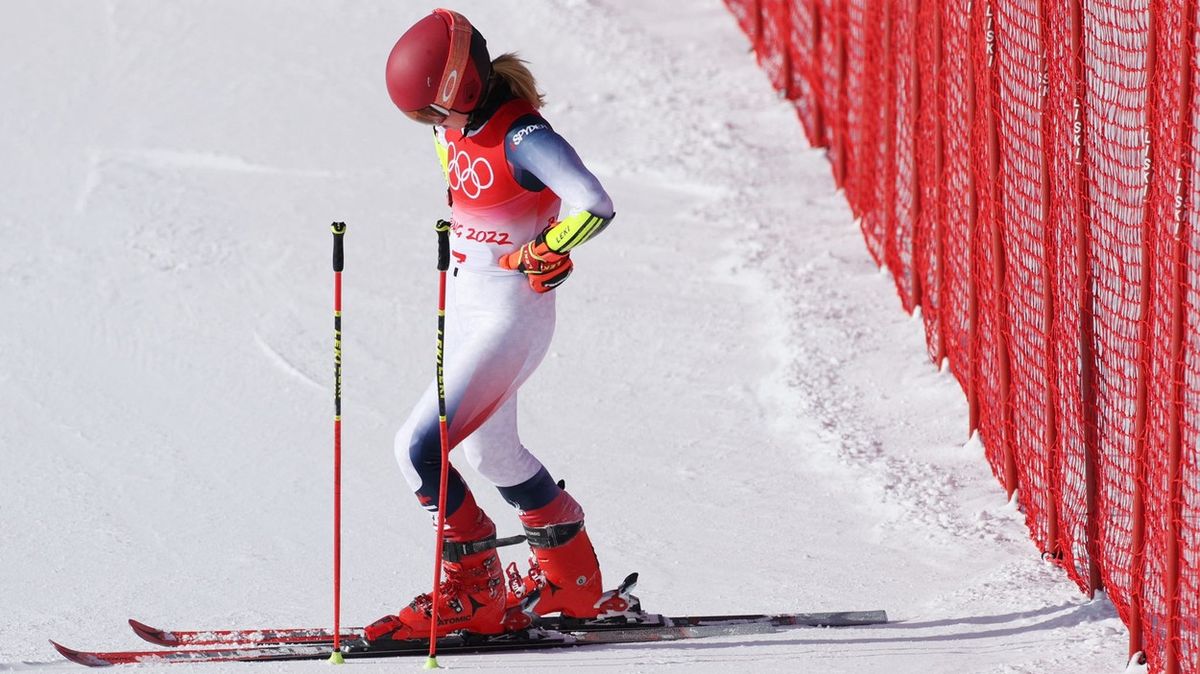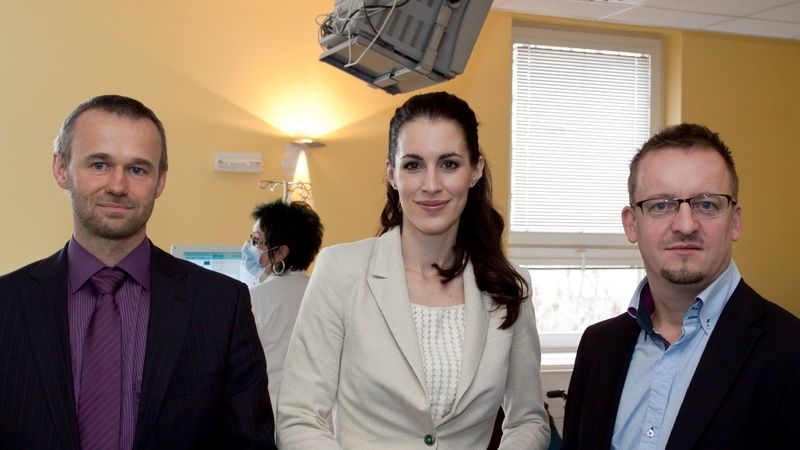After failing in her favorite event at this week’s Beijing Olympics, American skier Mikaela Shiffrin appeared to have bounced back on Friday. She ranks ninth in the women’s super-G. He smiled as he drove to the finish line. He was panting, but looked relieved.
“I just went skiing and it’s a relief that I’m here at the finish line now. It’s been great,” he said of his performance.
The Beijing Olympics should have been Shiffrin’s chance to become the first US alpine skier to win three Olympic gold medals. Expectations that put him under a lot of pressure.
Earlier this week, Shiffrin ran 11 seconds in the first qualifying round of the giant slalom, then slipped and fell. Two days later, in the women’s slalom qualifying round, she stayed on the track for only five seconds. After qualifying for the slalom, Shiffrin sat on the edge of the slope for a few minutes with his head in his lap, looking distraught.
“There’s been a lot of disappointment in me over the past week. There’s been a lot of emotion involved. It’s not easy to reset,” said Shiffrin after the women’s super-G.
Before her third Olympics, she had to face a number of personal obstacles. In 2020, his father died unexpectedly. After his death, he often thought about ending his career early. However, Shiffrin admitted to getting a lot of support from fellow athletes and fans.
This allowed him to return to the slopes, which turned out to be the best solution. “I cannot express how grateful I am to be able to focus again on a new race, in a sport that I love so much. Carry on,” he wrote on Twitter.
Well, I got a lot of support over the last 48 hours and I have to thank everyone for that.
Today is Super G, and Super G is fun. I cannot express how grateful I am to have the opportunity to refocus on a new race, in a sport that I love so much. Etc.— Mikaela Shiffrin (@MikaelaShiffrin) February 10, 2022
Criticism of NBC America’s coverage
There was a lot of criticism when Mikaela Shiffrin walked off the track and another gold medal that was hoped to escape her, barely made it through.
“One of the biggest shocks in Olympic alpine skiing history,” said NBC commentator Dan Hicks. “Almost a rookie mistake,” added analyst Ted Ligety, himself a two-time gold medalist, in the same segment on NBC.
NBC cameras caught Shiffrin for over 20 minutes as he sat on the track after the race. Television also aired a crude interview in which the skier held back tears and said he questioned everything he had done over the past 15 years.
“I questioned everything I thought I knew about my skiing, slalom and racing mentality. And I feel really bad. There’s a lot more going on today than just my little situation, but I feel really bad that I came out like that,” Shiffrin said in an interview with NBC.
I questioned everything I thought I knew about my skiing, slalom and racing mentality. And I feel really bad, there’s a lot more going on today than just my little situation, but I feel really bad because I came out like that.
Shiffrin says he can handle pressure and he has reason to be optimistic. After the slalom, he even thanked the journalists for their words of encouragement. But at the same time, she struggles with the how and why of her disappointing performance. “I’ll try resetting again… But I also don’t know how to do it better because… I can’t. I’ve never been in that position before and I don’t know how to deal with it,” he said.
“My whole intention, which has been built on since this summer, is to push this race aggressively. That’s what I’m trying to do. The problem is that you have to finish races, and that’s probably my main problem at the moment, and it’s never happened in my career. me,” said Shiffrin.
“I feel like there’s a lot to analyze, but my goal was to push the saw and maybe I went a little too far. Maybe it’s due to pressure, maybe it’s better to ask a psychologist about it, or everyone will have their own opinion about it. Honestly, I’m embarrassed, so it’s hard to really know what went wrong,” the American added.
After the emotional interview aired, much criticism fell on American television and its coverage of the fate of female competitors.
Shiffrinová’s friend and successful skier Aleksander Aamodt Kilde has stated in the past that the pressure placed on athletes is enormous. At the same time, he called for the support of “normal people like Shiffrin”.
Olympic skier Lindsey Vonn also added words of support, tweeting to Shiffrin: “This does not detract from her storied career and what she has accomplished and will continue to achieve. Head up.”
“We didn’t do anything wrong,” claims NBC
American television NBC, however, defied the criticism. NBC is just doing its job, said Molly Solomon, executive producer for coverage of the Olympics. “As broadcasters of the Olympics, we have an obligation at this time to cover this moment,” Solomon said in an interview with The Associated Press on Wednesday night.
“When someone goes off the track while going downhill or someone falls while skating, there is no scenario. We watch real people with real emotions in real time. We did everything we had to do,” Solomon said.
“Women’s sport should be analyzed through the same lens as men’s sport. The world’s most famous skier did not complete the two disciplines in which she was the best. That’s why we show her sitting on a hill. We want and will analyze what went wrong,” he said.
“He is one of the best alpine skiers of all time. He is 26 years old and very successful. So for all of us, of course, he will be one of the main characters of the Olympics,” Solomon added.
Peace of mind for success
For the second time in a row, the emotional health of athletes was discussed at the Olympics. In particular, the experiences of gymnast Simone Biles and tennis player Naomi Osaka remain fresh in the memory.
Sports psychologist Gene Moyle agrees that if an athlete fails, it can make it more difficult to get back on his feet. “The hope of success can come from people in the country you represent or from people around you. TI all wants athletes to do really well,” he said.
“It could be exacerbated from a media point of view, it could be another pressure. There’s a feeling that athletes don’t want to let people down. And sometimes you have to work with athletes to get rid of that outside pressure,” added Moyle, who has worked with the Winter Olympics for a long time.
Shiffrin’s struggles are reminiscent of gymnast Simone Biles’ struggles at last year’s Tokyo Olympics. Struggling with personal problems and immense pressure, Biles shocked the world after pulling out of several events, citing the need to focus on his mental health.
Biles also supported Shiffrin on Wednesday, sharing a heart emoji on Twitter. He also added a comment from writer Charlotte Clymer, who said that “slandering people just because they didn’t do well at the Olympics seems like the opposite of why we had the Olympics in the first place”.
The debate over mental health also accompanies last year’s Olympics
Japanese tennis player Naomi Osaka is also struggling with the mental effects of immense public pressure on sporting performance. He opted out of another major tournament before the Summer Olympics in Tokyo to avoid the media, which he says is affecting his mental health.
During last year’s Olympics, she ended up losing in two sets in the last 16 to Markéta Vondroušová, who is way below her in the world rankings.
The twenty-three-year-old became the first Asian world number one and won four Grand Slam titles. After admitting that he was being treated for depression and anxiety, parts of the world praised him for being open and biting the subject. The second part, on the other hand, criticized him for his weakness, the sporting world and organizers criticized the players for their little contact with the media.
Another athlete who spoke publicly about his mental problems in Tokyo last year was American bowler Raven Saunders. After winning the silver medal, he crossed his arms above his head in the symbol of the “crossroads of the oppressed”. The 25-year-old athlete admits to battling depression. But he is also trying to fight for the rights of the LGB+ community, of which he is a part.
Their activity on social networks, where they are often the target of criticism and insults from users, certainly does not contribute to the quality of mental health. Insults and attacks on social networks were discussed, for example, during last year’s 2020 European Football Championship, when rising England star Bukayo Saka, who missed a penalty in the final, became their target.

“Certified bacon geek. Evil social media fanatic. Music practitioner. Communicator.”







